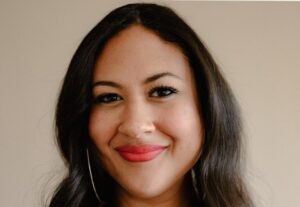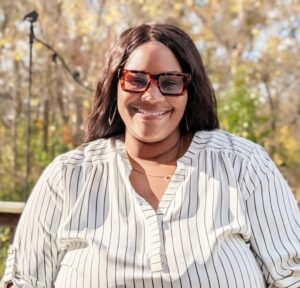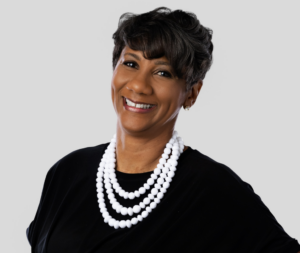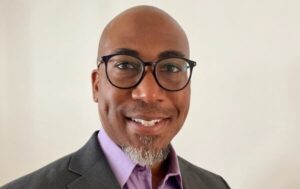6 questions with: Erin Allsman of the Brownstein Group
Erin Allsman shares how humor is her go-to tool at work.
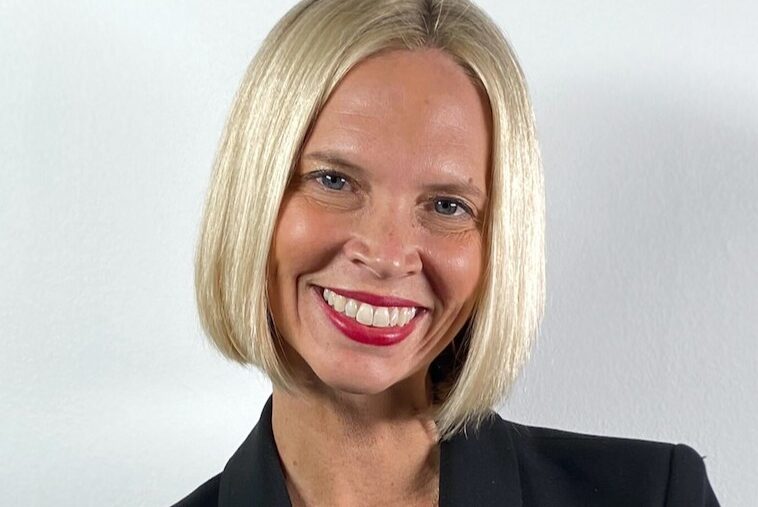
Erin Allsman serves as the president of the Brownstein Group, where she holds a pivotal role in overseeing the agency’s brand strategy, public relations, social media, and digital practices. With a keen focus on long-term growth and specialization strategies, Allsman is at the forefront of steering the agency toward innovation and success.
In her prior position as managing director, Allsman played a key role in orchestrating a comprehensive agency re-branding and spearheaded initiatives to enhance workplace improvements and agency communications. Her efforts significantly contributed to one of the highest growth margins in the agency’s history.
We caught up with Allsman to get her thoughts on the future of the communications industry.
What book, podcast or other media do you recommend to other comms pros?
While I’d love to be a more regular podcast user, I still mostly rely on email newsletters and roundups to get a handle on the day’s top headlines across the range of comms topics that we deal in. I’m a big fan of the 4A’s Smartbrief which aggregates a wide range of marketing news and thought leadership, as well as Marketing Brew. I also use the Smartbrief on Leadership, which provides useful tips on organizational operations, team development and business management. As for recommended books, I loved Imagine it Forward by Beth Comstock, former head of marketing and innovation at GE. She chronicles her incredible career as a communicator and change maker and the steps she took to break through even the toughest barriers to advocate for some of the boldest business moves in digital media and sustainability. A truly inspirational leader and a great example of what is possible when communications professionals get the right seat at the table.
What’s your favorite tool you use regularly for work?
My sense of humor! It’s not a tool in the literal sense obviously, but I do believe it helps me get through a lot of challenging situations and build personal connections. We are in a relationship business, and a good sense of humor helps me be a more approachable leader and build meaningful relationships with the people that matter most – my team at the agency, our clients, partners and influencers who all help us deliver on our brand promises.
What excites you most about the future of communications?
I believe more and more organizations and leaders are seeing the true value of communications and understand that a comprehensive and strategic comms platform is not just a nice-to-have, but a business imperative. Consumers are demanding authenticity, transparency and positive social, economic and environmental stewardship from brands more vehemently than ever, and the brands that respond best to those demands will be rewarded with loyalty, longevity and growth. It excites me to see the elevation of communications as a key strategic priority for organizations that want to be at the forefront of this sea change.
What communications challenge keeps you up at night?
While social media has opened so many doors for communicators and done so much to deepen relationships between brands and their audiences, the rise in frequency and ease of misrepresentation and misinformation is incredibly concerning. In addition, as generative AI becomes more ubiquitous, we as communicators have to find the right balance between its utility as a tool in our work and a crutch that leads to mediocrity. We also have to commit to a high ethical standard for its use so that we protect the rights of creators and maintain the integrity and authenticity of the content we publish.
What’s the biggest challenge you’ve overcome in your career?
Navigating the pandemic and all of its many implications was by far the biggest challenge I’ve ever experienced. As a communications firm, we were in a doubly challenging situation, as we had to provide consultation and strategy to our clients in real time while we ourselves were dealing with the situation in our own business. There was no case study or precedent to help validate our strategy. We had to trust our instincts, be vulnerable, think fast, act faster and be willing to pivot as the situation unfolded. It was a far more emotional process than I could have anticipated.
What is the best advice you’ve ever gotten?
From a career perspective, the best advice I’ve received was “If you want the job, build the plan.” I believe the best leaders have a vision for where they can take their organization and can keep that north star in mind even when the minutia of the day-to-day takes priority. Then, surround yourself with people who believe in the vision, can help you execute with passion, creativity and resilience, and make you better every day, and you’ve got what it takes to be successful and fulfilled!
Isis Simpson-Mersha is a conference producer/ reporter for Ragan. Follow her on LinkedIn.


